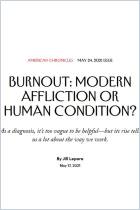Acesse a sua conta getAbstract para obter o resumo!

Acesse a sua conta getAbstract para obter o resumo!
Jill Lepore
The Invention – and Reinvention – of Impeachment
It’s the ultimate political weapon. But we’ve never agreed on what it’s for.
The New Yorker, 2019
Sobre o que é?
The dearth of precedent makes impeachment an unpredictable political beast.
Recommendation
Impeachment is an unpredictable political process, not least because of a dearth of precedent. In this study of the history of impeachment, historian Jill Lepore provides much-needed perspective on modern-day impeachment debates. Lepore explores why impeachment became a part of American politics, how past impeachments have defined – or attempted to redefine – what is or is not an impeachable offense, and the ways increased partisanship has rendered impeachment proceedings both more common and less effective than ever before.
Summary
About the Author
Jill Lepore is Professor of American History at Harvard University and a staff writer at The New Yorker.
























Comment on this summary